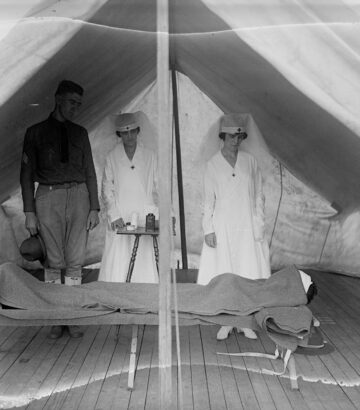Constitutional Implications for Mensa of IQ Loss After SARS-CoV-2 Infections
By Kishor Kale
There are four issues which will be discussed in this essay: the core purposes of Mensa, the responses from Mensa officials to my emails about the Constitutional implications for Mensa of IQ loss after SARS-CoV-2 infections, the explicit scope of the US Mensa Bulletin and the implicit scope of the British Mensa Magazine, and the eligibility criteria for Mensa membership.
(1) The fundamental purposes of Mensa
The article at https://www.scientificamerican.com/article/covid-19-leaves-its-mark-on-the-brain-significant-drops-in-iq-scores-are/ states that “In the same study, those who had mild and resolved COVID-19 showed cognitive decline equivalent to a three-point loss of IQ. In comparison, those with unresolved persistent symptoms, such as people with persistent shortness of breath or fatigue, had a six-point loss in IQ. Those who had been admitted to the intensive care unit for COVID-19 had a nine-point loss in IQ. “ Mensa’s Constitution at https://mensa.org.uk/wp-content/uploads/2024/01/constitution_of_mensa_2020.pdf states (“The Nature of Mensa”):
“Mensa’s purposes are:
- to identify and foster human intelligence for the benefit of humanity; [My emphasis]
- (..)
- to provide a stimulating intellectual and social environment for its members.” [My emphasis]
Does this not require Mensa to ensure that its meetings are Covid-safe, even in jurisdictions where no mitigations are legally required, in order to comply with the requirements to foster human intelligence (and not risk decreasing it) and to provide a stimulating (and not potentially brain-damaging) environment? (Other organisations have used Covid mitigations. The World Economic Forum stipulated PCR testing for all participants together with “state of the art ventilation systems for areas with restricted air circulation” and provision of free FFP2 masks in their safety document for their January 2023 meeting, and the ongoing UK Covid-19 Public Inquiry’s precautions include a requirement for lateral flow testing for all attendees, provision of free FFP2 masks, ventilation designed to the “BSRIA Standards for Air and Water Systems” provided by 16 ventilation units and giving 8 Air Changes per Hour, two HEPA purifiers, and CO2 monitoring (https://covid19.public-inquiry.uk/wp-content/uploads/2023/06/12110734/2023-05-25-Covid-Policy.pdf ).)
Although I have no legal training, I can see three potential legal questions here, the answers to which may well be different in various national jurisdictions. The first is that if a member catches a SARS-CoV-2 infection at a meeting, and this leads to IQ loss (as distinct from other post-acute Covid sequelae), would he be able to sue the organisers on the grounds that they have breached the Mensa Constitution? The second question is whether a member who is deterred from attending an in-person meeting which is not Covid safe (even though it complies with local legal requirements) could sue on the basis that Mensa is acting unconstitutionally, even though he has not actually caught Covid at the meeting? The third question is that if a Mensa Committee meeting is held under conditions which are not Covid safe (even though they comply with local legal requirements), and if no online attendance option is allowed, could a committee member who is unwilling to attend because he does not wish to risk brain damage be able to mount a legal challenge to annul any decisions made by the committee? The following may help answer these questions. According to https://petervogel.legal/rubyprincess/, “The ACL [Australian Consumer Law] includes guarantees that services provided to a consumer must be reasonably fit for purpose and delivered with due care and skill. These guarantees cannot be excluded in a contract.” The webpage also states,”The Ruby Princess case illustrates how consumer laws might be applicable to many situations where service providers are not taking due care to protect consumers from risk of contracting COVID or other infectious disease”, and “Action can be brought before anyone is actually injured, for example if a nursing home fails to provide reasonable protection making someone reluctant to engage in activities or causing distress”. Of course as a non-lawyer I do not know whether or not Australian Mensa meetings fall under the scope of the ACL. However, even if this is not the case, can a meeting of Mensa be “reasonably fit for purpose” if it carries a risk of Covid-related IQ loss? Another consideration is that there may be countries other than Australia where an analogue of the ACL applies. Finally, according to https://shepwedd.com/knowledge/judicial-review-only-public-bodies, “Judicial review might, therefore, be a more effective remedy in circumstances where an organisation has gone beyond the powers provided to it under a constitution, statute or other governing document, regardless of whether that body is a public or private body.” I do not know whether or not this would be relevant to a British Mensa meeting held in Scotland. However, something similar may hold in some other jurisdictions.
There are still more potential complications. According to https://mensa.org.uk/2024-agm/ “Proposed motions will be checked using the following criteria: …Contravention of the Constitution”. Obviously I do not know what Covid mitigations will be in place at the next British Mensa AGM, but if it is not Covid safe,we may have the delightfully absurd situation in which the Motions do not contravene the constitution but the meeting itself does. The argument can be taken a step further. Consider the following hypothetical motion: “This motion cannot constitutionally be discussed at the AGM”. As it stands, although it is both false and seemingly pointless, the motion does not contravene the Constitution, and thus Mensa must allow it to be put. If the AGM is Covid-safe, then the motion would be defeated (probably unanimously). However, if the meeting is not Covid-safe, then the motion is a Godel sentence: a proposition which is true yet cannot be constitutionally discussed at the AGM and therefore cannot be either supported or defeated. The significance of this hypothetical motion can be seen by considering three alternatives. “Mensa is a high IQ Society” is a motion which is true independently of whether the AGM is Covid-safe. “Mensa is not a high IQ Society” is a motion which is false independently of whether the AGM is Covid-safe. The Epimenides sentence “This sentence is false” has an indeterminate truth-value independently of whether the AGM is Covid-safe. Thus Mensa would have (inadvertently) broken new logical ground.
(2) Responses from Mensa officials
On 24th March 2024 I emailed the Chairs of various National Mensas, including British, Australian, and American Mensas, about the constitutional implications for Mensa of IQ loss after SARS-CoV-2 infections, and resent my email on 7th April 2024.
On 12th April 2024 the Chair of US Mensa advised me that American Mensa is following all national, state, and local Covid requirements. As I am not familiar with these requirements, I asked her to indicate how these compare to the mitigations in force at the 2023 World Economic Forum meeting in Davos and at the ongoing UK Covid-19 Public Inquiry. On 7th May 2024 I had a final response from her indicating that she had nothing to add to her statement of 12th April. She copied both her emails to my original circulation list, which included the Chairs of British Mensa and of Australian Mensa.
I emailed the International Mensa Ombudsman on 20th April 2024 and again on 27th April 2024, copying my emails to the Chairs of British and Australian Mensa, and requesting: “ Please could you ask the Chairs of the UK and Australia Mensas to respond to my email of 24th March 2024?” Her response of 27th April 2024, which she also copied to the Chairs of British and Australian Mensa, was that they would “respond accordingly as they deem appropriate”. On 12th May 2024 I sent the International Mensa Ombudsman the Chair of US Mensa’s final response email, and had a response from her on the same day, also copied to my original circulation list, including the Chairs of British and Australian Mensa, advising me that she cannot intervene.
At the time of writing, I have still not had a response from the Chair of British Mensa or the Chair of Australian Mensa to my email of 24th March 2024, resent on 7th April 2024.
On 5th May 2024 I wrote to the candidates for the forthcoming Mensa International elections, drawing their attention to the research which was discussed at https://www.scientificamerican.com/article/covid-19-leaves-its-mark-on-the-brain-significant-drops-in-iq-scores-are/, and pointing out that Mensa’s Constitution as stated at https://mensa.org.uk/wp-content/uploads/2024/01/constitution_of_mensa_2020.pdf requires Mensa to “identify and foster human intelligence for the benefit of humanity” and “to provide a stimulating intellectual and social environment for its members`”. I suggested that these two requirements implied that all Mensa meetings should be made Covid-safe (either through appropriate use of mitigations or through online attendance options), whatever the legal requirements for mitigations in the jurisdictions in which the meetings are held. The candidate who was subsequently elected Chairman of International Mensa replied in an email to me dated 6th May 2024 that if a “similar situation” [I do not know what she means by “similar situation”, since according to the World Health Organisation the pandemic is still ongoing] arose while she was International Chairman, she would ensure that a document about Covid safety at meetings was devised and published on the website. She also said that Mensa would publish articles on the effect of Covid on IQ, as this subject is of “particular interest” to Mensa and that they should be “minimising risks” for members. The September/October 2024 Edition of “IQ” (the British Mensa Magazine) contains an article on page 40 by the newly-elected International Chairman which was reprinted from the August 2024 “Mensa World Journal”. In it, she says: ‘We have our main constitutional aims, but how can we, very broadly, put them into practice? Administratively, we identify intelligence and encourage research into intelligence. However, with members from so many walks of life, it is hard to see how Mensa can “foster intelligence, for the benefit of humanity”, or how to provide “a stimulating intellectual and social environment” for our members.’ I have already answered her question in my email of 5th May 2024: a starting point is to ensure that all meetings are Covid-safe.
(3) Explicit scope of topics covered in the US Mensa Bulletin and implicit scope of topics covered in the British Mensa Magazine (“IQ”)
The US Mensa website https://www.us.mensa.org/read/bulletin/submissions/ states that “The topics covered in the Bulletin range as widely as American Mensa members’ interests. There are no specific subjects we pursue or avoid…” The Editor of the US Mensa Bulletin advised me on 6th May 2024 that while he would be happy to publish a letter from me on the general subject of Covid mitigations at Mensa events, the Bulletin does not deal with potential legal or constitutional concerns. This contradicts the statement on the US Mensa website at https://www.us.mensa.org/read/bulletin/submissions/ that “There are no specific subjects we pursue or avoid”. There is also a question of logic: if the Editor thinks there are grounds for publishing a letter arguing for the desirability of Covid mitigations at Mensa events for medical reasons, why is he unable to publish a letter which goes further and argues that such mitigations are implicitly mandated by the Constitution? Covid has undesirable long-term effects independently of national laws or the Mensa Constitution. The Editor also suggested that for members of American Mensa, the appropriate forum for discussion of legal or constitutional matters would be the local Ombudsperson or Regional Vice-Chair. As indicated above, I have contacted the National Chair of US Mensa and the International Ombudsman and reached a deadlock.
The US Mensa website goes on to state:
“There are no specific subjects we pursue or avoid but are generally guided by two questions when considering content: Will Mensans find this compelling? And is this content Mensans aren’t likely to find in other commoditized mediums? We value articles about intelligence or experiences in Mensa but also appreciate esoteric subjects. Readers tend to favor depth and specificity over breadth, a preference that has led to some delightfully narrow explorations in the magazine.”
The May 2024 issue of the Mensa Medics SIG Newsletter included an article by me (even though I am not a medic) about the Constitutional implications for Mensa of IQ loss after SARS-CoV-2 infections, and the Editor of the Newsletter highlighted the following sentence in my article: “Considering how COVID risks interact with Mensa’s constitution is a perfect opportunity for the organization to engage in the sort of stimulating, consequential debate it is intended to foster.” Thus this topic would appear to be ideal for the US Mensa Bulletin.
I wrote to the US Bulletin Editor on 26th May 2024 asking him whether he has any journalist contacts at other publications which would be interested in running a story about the Constitutional implications for Mensa of IQ loss after SARS-CoV-2 infections. I made the point that “I am raising a fundamental constitutional point which affects every in-person Mensa meeting everywhere in the world, and, moreover, one which has medical implications.” I have not yet had a reply to this.
Also, the Editor-in-Chief of the British Mensa Magazine (which is called “IQ”) said on 16th April 2024 that this topic would probably be more suitable for a medical journal but that he would be discussing my idea for an article about it with Mensa. I have since had a final response from him dated 10th June 2024, advising me that he does not plan to publish an article about it. Although as far as I know the British Mensa Magazine, unlike the US Mensa Bulletin, does not have any formal guidelines for appropriate subjects, one has to wonder why it is called “IQ” if it is not willing to run an article about post-Covid IQ loss and its implications for Mensa. There is however an advertisement for a food supplement on page 2 of the November/December 2024 Mensa Magazine that says:
“In a recent survey over half of Brits say their memories have got worse in recent times, and they lost their train of thought up to 10 times a day. So why could this be?”
The Mensa Magazine is willing to run this advertisement, but not to publish an article on the Constitutional implications for Mensa of post-Covid IQ loss. The Editor said in his email of 16 April 2024 at 16:43:12 BST that an article on these Constitutional implications is “probably more suitable for a medical journal”. So why does the same criterion not apply to the advertisement? Why is the Magazine willing to publish an advertisement which asks why people have been suffering from cognitive problems, but not willing to publish an article about research into post-Covid IQ loss, and its specific Constitutional implications for Mensa?
Clearly International Mensa are aware of the potential long-term implications of Covid. An article on page 10 of the December 2024 _Mensa World Journal_ said:
“What do you know about Long Covid? You don’t want to get it!”
Experts consider that the best way to avoid getting long Covid is to avoid getting Covid. So Mensa should make its meetings Covid-safe, not only to comply with their constitutional requirements to foster human intelligence (and not risk decreasing it) and to provide a stimulating (and not potentially brain-damaging) environment, but also to follow the advice in the _Mensa World Journal_ that getting long Covid is undesirable.
(4) Eligibility for Mensa
The Mensa Constitution states:
“INDIVIDUAL MEMBERSHIP
A. ELIGIBILITY
Persons who have attained a score within the upper two percent of the general population on an intelligence test that has been approved by the International Supervisory Psychologist and that has been properly administered and supervised shall be eligible for membership. There shall be no other qualification or disqualification for initial membership eligibility.”
There is a post in the Reddit Mensa Forum at https://www.reddit.com/r/mensa/comments/1ems9xw/are_peoples_iqs_lower_since_covid/?rdt=53200 which states:
“Yes. So here’s the kicker…if the average person gets COVID 1-2x a year, all of humanity’s IQ will drop 20-40* points in 10 years! The new average will be what’s currently considered mental retardation. The few who stay COVID-free will be geniuses without doing anything or even opening a book! ROFL
* The study you cited also found 2 point decrease for every repeat COVID infection. People currently in MENSA may be booted after enough infections. LOL”
The Eligibility Criterion in the Constitution refers to performance relative to the general population at the time the test was taken, and thus does not have any implications for those who are already members of Mensa. So, contrary to the fears of the Reddit poster, nobody can be “booted” from Mensa as a consequence of IQ loss subsequent to admission. However, many of the world’s population have already had at least one SARS-CoV-2 infection, and statistically this number must include many who, before the pandemic, had IQs in the top 2%. Thus the current borderline IQ for the population as a whole at the 98th percentile may be lower than the pre-pandemic 98th percentile score of 132 on the Stanford Binet scale (the equivalence between the 132 score and the 98th percentile is taken from https://www.us.mensa.org/join/testscores/qualifying-test-scores/), and Mensa may now be constitutionally obliged to accept new members who score only 131, if the score of 131 puts them in the current top 2%. Thus if someone scored 131 (on the Stanford Binet test) before the pandemic and was legitimately rejected, and he has been lucky enough to avoid Covid, then if he is retested now and again scores 131, Mensa may constitutionally be compelled to admit him. However, his previous test result would not qualify him for admission, because at the time he attained it, it did not put him in the then top 2%.
Conversely, if someone scored 132 or over before the pandemic (putting him in the then top 2%), chose not to join Mensa at the time, and subsequently had a Covid infection which resulted in IQ loss sufficient to push him out of the current (2025) top 2%, then Mensa would be constitutionally compelled to admit him on the basis of his pre-pandemic test. The risk of long-term problems other than IQ loss is known to increase with repeat infections, and so someone who has already had Covid may be particularly motivated to join an organisation such as Mensa which is constitutionally obliged to offer Covid-safe social events. In particular, under the Constitution as it stands, Mensa has to accept someone who tested on the borderline at 132 pre-pandemic and had subsequently had a severe Covid infection which put him in intensive care and cost him 9 IQ points, leaving him with a current IQ of 123, because at the time of testing he would have been in the top 2%. Thus the ranks of Mensa may now be swollen by new members in two categories. First, those who wished to join before the pandemic, were unable to because they were not in the top 2% then, who have not had Covid, and are now in the new top 2%. Secondly, those who were in the top 2% before the pandemic but who saw no point in joining Mensa at the time, who now wish to join an organisation which is constitutionally required to make its meetings Covid-safe, and who (i) were tested before the pandemic ; or (ii) were not tested before the pandemic but have been lucky enough to avoid Covid so far ; or (iii) who have had Covid but whose IQs were initially high enough that even after IQ loss they are still in the top 2%.











